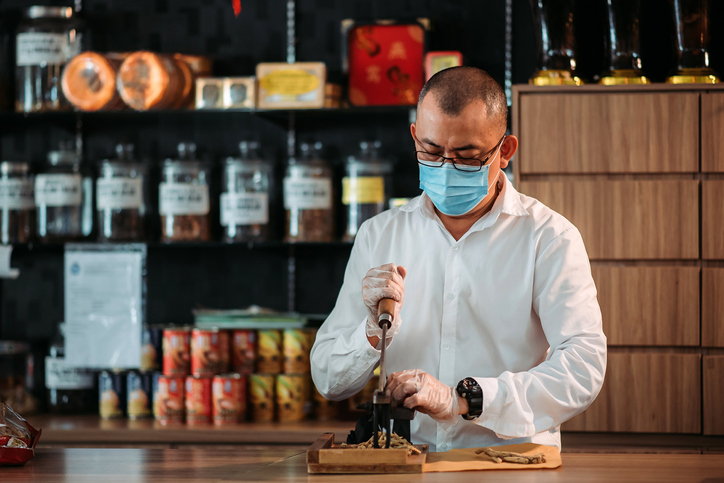Discovering Anti–Inflammatory Compounds In Chinese Medicinal Herbs
23 Ago 2021

Researchers use an innovative strategy to identify specific compounds from Zhongjing formulae that could be developed into new drugs to treat inflammatory bowel disease.
Inflammatory bowel disease (IBD), which includes ulcerative colitis and Crohn's disease, are lifelong conditions that cause a range of debilitating symptoms such as recurring diarrhea, pain, cramps or swelling in the abdomen, weight loss and extreme tiredness.
While there is no cure for IBD, there is a range of existing treatments that can help to control symptoms and improve a person’s quality of life. These include traditional medications, such as corticosteroids and anti-inflammatories, as well as newer biological drugs.
But current therapies don’t work for all patients with IBD - and so the development of effective new medications remains a priority.
Searching For New Drug Compounds From Traditional Remedies
Traditional Chinese Medicine (TCM) originated in ancient China and has evolved over thousands of years. Its practitioners use herbal medicines combined with various mind and body practices to treat or prevent health problems.
Herbal extracts used in TCM may contain potentially valuable compounds that could be useful in modern medicine. But isolating individual active components is a daunting and labour-intensive process – with a low probability of success.
Integrating knowledge from the ancient TCM literature could help improve current high-throughput screening strategies – accelerating progress in discovering new compounds. Zhongjing formulae, which was originally compiled by Zhang Zhongjing of Eastern Han Dynasty, is regarded as the “progenitor of all TCM formulae.”
Identifying Compounds With Activity Against IBD
In a new study, published in Chinese Medicine, researchers set out to identify compounds from Zhongjing formulae with the potential to be developed into drug treatments for IBD.1 Using computerized text mining, the team analysed the relationship between 248 Zhongjing formulae and typical IBD symptoms. Next, they prepared and screened 74 herbal fractions from the top three formulae for potential therapeutic effects using a zebrafish model of IBD.
The researchers used high–resolution mass spectrometry to determine the chemical composition of the hit fractions. They then conducted a second–round screen, identifying six active compounds (palmatine, daidzine, oroxyloside, chorogenic acid, baicalin and aesculin) with anti–IBD effects. Further experiments suggested that aesculin and daidzin possess the most potent anti–inflammatory activity.
The team used an ELGA PURELAB® flex water purification system to generate the high-quality water used in their experiments, minimising the risk of adding contaminants that may affect their results.
An Innovative Approach
This study identifies several active substances from TCM with the potential to treat IBD by combining the techniques of knowledge mining, high–content analysis and high–resolution mass spectrometry.
Further studies are now needed to investigate the biological effects of these compounds in IBD treatment – with aesculin and daidzin as particularly interesting drug candidates. This highly efficient research strategy could also be applied in the discovery of effective TCM formulae and potential drug compounds for the treatment of other diseases.
Why Choose ELGA LabWater?
ELGA has been a trusted name in pure and ultrapure water since 1937. Our dedication to ultrapure and pure water is a guarantee that we will continue to provide the best solutions with the best service.
Reference:
- Yunru, Y. et al. Identification of anti–inflammatory compounds from Zhongjing formulae by knowledge mining and high–content screening in a zebrafish model of inflammatory bowel diseases. Chin Med 2021;16(1):42. doi: 10.1186/s13020-021-00452-z
Dr Alison Halliday
After completing an undergraduate degree in Biochemistry & Genetics at Sheffield University, Alison was awarded a PhD in Human Molecular Genetics at the University of Newcastle. She carried out five years as a Senior Postdoctoral Research Fellow at UCL, investigating the genes involved in childhood obesity syndrome. Moving into science communications, she spent ten years at Cancer Research UK engaging the public about the charity’s work. She now specialises in writing about research across the life sciences, medicine and health.
